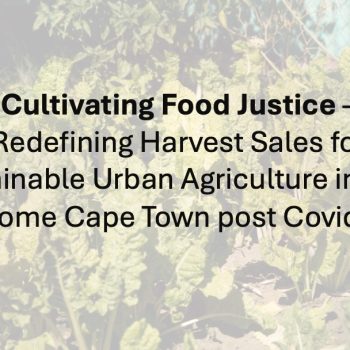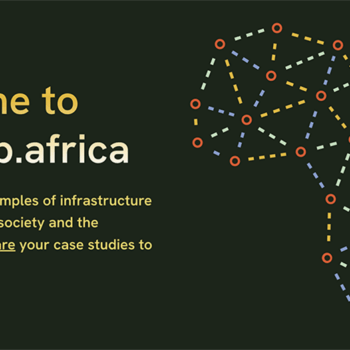Meet the Director
Professor Edgar Pieterse is the founding director of the African Centre for Cities (ACC) at the University of Cape Town. His research and teaching explore urban imaginaries, alternative futures, sustainable urban infrastructure, place-making, public cultures, responsive design and adaptive governance systems. He publishes different kinds of text, curate exhibitions, as well as difficult conversations about pressing urban problems. Since the founding of ACC, he has published two books, City Futures (Zed, 2008) and New Urban Worlds (Polity, 2017, with AbdouMaliq Simone), as well as nine co-edited books, dealing with a wide-ranging set of topics related to contemporary urbanism and place-making.
Professor Pieterse’s scholarship is animated by a need to make sense of the ways in which climate change, multi-dimensional inequality, informality, governance and technology intersect in urban spaces, especially in Africa and cities of the global South. Of course, this sensemaking is somewhat futile due to the implied complexities, but also essential to figure out what a grounded, yet radical imagination of alternative urban futures might entail. More pointedly, he is curious what multiple solutions and pathways for advancing sustainable and vibrant cities might involve as acts of exploration and doing. Thus, his research is informed by emergent experiments with alternative forms of doing, organising, regulating and social narration. Conceptually, he locates his research, teaching, and curatorial work at the intersection of critical urban theory, open systems approaches, design-based methods, technological intermediation and aesthetics.
His practice is structured around three inter-dependent streams: research, teaching and curation. Current research is focused on: i) transforming African urban futures through the adoption of sustainable infrastructure approaches and its enablement through alternative regulation, finance and governance; ii) developing a fit for purpose institutional model to mainstream city-level innovation ecosystems; iii) delineating an ‘urban disposition’ in terms of research and practice that can contend with the inherent complexity and urgency of city making amidst multiple emergencies that truncate development prospects.
Teaching happens trough: i) the nurturing of leadership skills among African mayors through the African Mayoral Leadership Initiative (Amali); ii) producing ‘system integrators’ that are equipped with the skills of advancing integrated urban interventions that can advance sustainability and inclusivity through the Masters in Sustainable Urban Practice; iii) developing the next generation of urban scholars through the MPhil in Southern Urbanism. Professor Pieterse supervises various doctoral and post-doctoral candidates.
Curatorial work is done in collaboration with Tau Tavengwa and they ply their trade through the Cityscapes platform. Their practice is finalising an exhibition on multiple pathways through urban complexity that will manifest as decentralised installations in early 2024. They are also working on the second season of the Podcast, The City Show and preparing a new body of work under the rubric: Museum for the City, to commence in 2024 as well.
Professor Pieterse’s practice is enriched through active engagement with various global think tanks and research centres that share a commitment to system transformation and fostering radical imaginations: Bauhaus der Erde (Berlin); Club of Rome; 10X100 Forum; The Science Circle of the Robert Bosch Stiftung (Stuttgart); Indian Institute for Human Settlements (Bangalore); Pathways to Sustainability – Utrecht University; United Nations Innovation Technology Accelerator for Cities (UNITAC-Hamburg); and the Ubuntu Board of United Cities and Local Government (Barcelona).
Being both critical and propositional is not a choice but a necessity.
Edgar Pieterse



